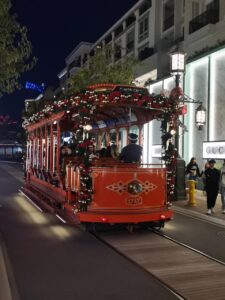Published: June 2025 | Reading Time: 8 minutes | For Musicians, Promoters & Event Organizers
Planning a successful concert or live show requires months of strategic preparation, careful budgeting, and smart marketing. Whether you’re organizing an intimate acoustic set at a local coffee shop or a full-scale rock concert at a major venue, this comprehensive guide will walk you through every essential step of pre-event planning to ensure your show rocks the house and leaves fans wanting more.
This is Part 1 of our 2-part concert planning series. Part 2 covers event execution, day-of coordination, and post-show analysis.
Table of Contents
- Step 1: Define Your Show’s Vision & Goals
- Step 2: Master Your Budget Like a Pro
- Step 3: Find the Perfect Venue for Your Sound
- Step 4: Build Buzz with Smart Marketing
- Pre-Event Planning Timeline
Step 1: Define Your Show's Vision & Goals
Know Your "Why" Before You Plan Your "How"
Every legendary concert starts with a clear vision. Are you launching a new album, building your local fanbase, or creating an unforgettable experience for your community? Your core objective will shape every decision from venue size to ticket pricing.

Primary Goals to Consider:
- Revenue Generation: Covering costs and making profit
- Fan Engagement: Building deeper connections with your audience
- Brand Building: Establishing your reputation in the local music scene
- Network Expansion: Connecting with industry professionals and other artists
Write down your top 3 objectives and rank them by priority. This clarity will guide you through tough decisions during the planning process.
Define Your Target Audience
Understanding your audience is crucial for concert success. Consider these key demographics:
Age Range: Are you targeting college students, working professionals, or music enthusiasts of all ages? This affects venue choice, ticket pricing, and promotional channels.
Music Preferences: What genres resonate with your audience? Even within rock, country, or electronic music, sub-genres attract different crowds with varying expectations.
Geographic Location: Local shows require different strategies than regional tours. Consider transportation, parking, and regional music preferences.
Spending Power: College towns have different economic realities than urban professional areas. Price your tickets accordingly.
Set Realistic Attendance Goals
Base your attendance projections on concrete data rather than wishful thinking. Research similar shows in your area, analyze your current social media following, and consider seasonal factors that might affect turnout.
Factors Affecting Attendance:
- Your current fanbase size and engagement levels
- Local competition (other events on the same date)
- Venue capacity and location accessibility
- Ticket pricing and value perception
- Weather considerations for outdoor venues
Start conservative with your projections. It’s better to sell out a smaller venue than to have empty seats at a larger one.
Step 2: Master Your Budget Like a Pro
The 50/30/20 Concert Budget Rule
Smart concert organizers follow this proven budget allocation:
50% – Venue & Production Costs
- Venue rental and deposits
- Sound system and lighting equipment
- Stage setup and technical crew
- Security and insurance requirements
30% – Marketing & Promotion
- Social media advertising campaigns
- Print materials (posters, flyers)
- Radio spots or music blog features
- Influencer partnerships and street teams
20% – Contingency & Miscellaneous
- Emergency fund for unexpected costs
- Last-minute equipment rentals
- Additional staff if needed
- Post-event expenses
Revenue Streams Beyond Ticket Sales
Diversify your income to maximize profitability and reduce financial risk:
Merchandise Sales: T-shirts, albums, and branded items can generate 15-25% of total revenue. Plan for display space and payment processing.
Sponsorship Opportunities: Local businesses often sponsor concerts for brand exposure. Offer package deals including logo placement, social media mentions, and VIP experiences.
VIP Packages: Create premium experiences with meet-and-greets, exclusive merchandise, or reserved seating areas.
Food & Beverage Partnerships: Some venues offer revenue sharing on concessions, especially for events you’re promoting independently.
Cost Control Strategies That Actually Work
Negotiate Everything: Venue rates, equipment rentals, and promotional services are often negotiable, especially for repeat bookings or off-peak dates.
Leverage Partnerships: Team up with other local artists for shared costs on sound equipment, marketing materials, or promotional efforts.
DIY Smart: Handle tasks like social media management and poster design yourself, but invest in professionals for critical elements like sound engineering.
Track Every Dollar: Use budgeting apps or spreadsheets to monitor expenses in real-time. Small costs add up quickly in event planning.
Step 3: Find the Perfect Venue for Your Sound
Venue Types and Their Unique Advantages
Music-Specific Venues
- Clubs, bars, and dedicated music halls
- Built-in sound systems and lighting
- Established music audiences
- Often have promotional partnerships
Alternative Spaces
- Art galleries, warehouses, and outdoor spaces
- Unique atmosphere and Instagram-worthy backdrops
- Often more affordable than traditional venues
- Require more planning for acoustics and logistics
Community Venues
- Schools, community centers, and churches
- Great for family-friendly or acoustic shows
- Often support local music initiatives
- May have restrictions on volume or content
Essential Venue Evaluation Checklist
Capacity & Layout
- Does the space comfortably fit your expected audience?
- Is there adequate space for stage setup and equipment?
- Are sight lines good from all areas?
- Is there room for merchandise tables and mingling?
Technical Capabilities
- What sound and lighting equipment is included?
- Are there adequate power outlets and electrical capacity?
- Is the acoustics suitable for your music style?
- Is there space for band equipment and setup?
Practical Considerations
- Parking availability and cost for attendees
- Public transportation accessibility
- Loading dock access for equipment
- Green room or space for performers to prepare
Licensing & Regulations
- Necessary permits for live music and alcohol service
- Noise ordinances and time restrictions
- Insurance requirements and liability coverage
- Health department regulations if serving food
Venue Negotiation Tips
Book Smart Dates: Weeknight shows or off-season dates often come with reduced rates and more flexible terms.
Multi-Show Deals: Propose a series of concerts for better rate negotiations and reduced booking fees.
Revenue Sharing: Some venues prefer percentage-based deals over flat rental fees, which can reduce upfront costs.
Value-Added Services: Negotiate included services like basic lighting, security, or promotional support as part of your rental agreement.
Step 4: Build Buzz with Smart Marketing
Create Your Concert Brand Identity
Your show needs a visual identity that stands out in crowded social media feeds and venue listings. Develop consistent branding across all promotional materials.

Visual Elements:
- Logo or show artwork that reflects your music style
- Color scheme that works across digital and print materials
- Photography style for promotional images
- Typography that matches your musical genre and audience
Messaging Strategy:
- Craft a compelling event description that highlights unique aspects
- Develop hashtags that fans will actually use
- Create shareable content that tells the story behind your show
- Focus on the experience and emotions, not just the logistics
Digital Marketing Channels That Convert
Social Media Strategy
- Instagram: Behind-the-scenes content, venue photos, countdown posts
- Facebook: Event pages, targeted ads to local music fans
- TikTok: Short performance clips, rehearsal footage, venue tours
- Twitter: Real-time updates, engagement with local music community
Email Marketing
- Build an email list from your current fanbase
- Create anticipation with exclusive content and early ticket access
- Send venue-specific information and parking details
- Follow up with thank you messages and future show announcements
Local Music Scene Engagement
- Connect with local music bloggers and podcast hosts
- Partner with other bands for cross-promotion
- Engage with venue’s existing social media community
- Participate in local music forums and Facebook groups
Traditional Marketing That Still Works
Physical Promotion
- Strategic poster placement in high-traffic areas
- Flyers at complementary businesses (record stores, coffee shops)
- Street team promotion at related events
- Radio station partnerships and on-air interviews
Community Partnerships
- Collaborate with local music stores for ticket sales
- Partner with nearby restaurants for pre-show dining deals
- Connect with local music education programs
- Engage with community event calendars and newsletters
Marketing Timeline for Maximum Impact
8 Weeks Before: Announce the show, create event pages, begin building anticipation
6 Weeks Before: Launch ticket sales, intensify social media campaigns, secure partnerships
4 Weeks Before: Ramp up advertising, confirm all promotional partnerships, engage local media
2 Weeks Before: Final promotional push, confirm all logistics, prepare day-of-event materials
1 Week Before: Last-minute reminders, share venue information, build excitement for show day
Pre-Event Planning Timeline
12-16 Weeks Before Show Date
- Define show objectives and target audience
- Set preliminary budget and attendance goals
- Begin venue research and site visits
- Start building your promotional timeline
8-12 Weeks Before Show Date
- Finalize venue booking and contracts
- Confirm budget allocations and revenue streams
- Begin marketing material creation
- Set up ticketing systems and payment processing
4-8 Weeks Before Show Date
- Launch marketing campaigns across all channels
- Secure sponsorships and partnerships
- Finalize technical requirements with venue
- Begin ticket sales and track early response
2-4 Weeks Before Show Date
- Intensify promotional efforts
- Confirm all vendor contracts and details
- Prepare for day-of-event logistics
- Create emergency contact lists and backup plans
What's Next?
You’ve now laid the groundwork for a successful concert with clear goals, solid budget planning, the perfect venue, and a killer marketing strategy. But the real magic happens on show day and beyond.
Coming up in Part 2: We’ll cover everything you need for flawless event execution, including day-of coordination, managing your team, handling unexpected challenges, and post-show follow-up strategies that turn one-time attendees into lifelong fans.
Ready to bring your vision to life? Start with these pre-event essentials, and you’ll be well on your way to creating a concert experience that rocks your audience and builds your reputation in the music!
